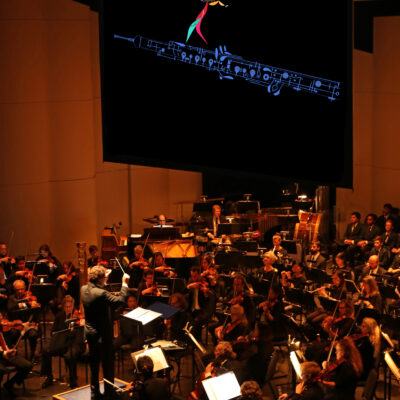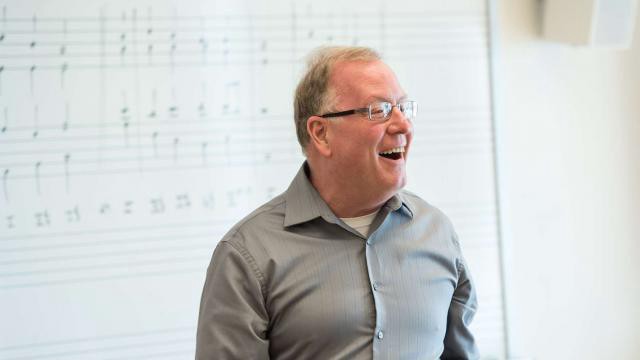“How he dealt with this deafness is one of the great stories of humanity, not just of music.” — Music Director Donato Cabrera

By California Symphony Music Director Donato Cabrera
Imagine directing an orchestra you can’t hear. Or playing a soundless piano for a staring audience.
Most know classical composer Ludwig van Beethoven struggled with deafness — but many don’t realize how much of a struggle it was. Beyond composing without hearing a note, Beethoven grappled with living in the 1800s when few understood deafness, hindering his ability to communicate, work as a musician and even find a place to live. How he dealt with this deafness is one of the great stories of humanity, not just of music.
Losing Sound
Beethoven began losing his hearing in his mid-20s, after already building a reputation as a musician and composer. The cause of his deafness remains a mystery, though modern analysis of his DNA revealed health issues including large amounts of lead in his system. At the time, people ate off of lead plates — they just didn’t know back then.
Continuing to compose and conduct, he changed lodgings constantly in Vienna, which could be due to Beethoven’s landlords’ frustration with him pounding on his piano at all hours.
Beethoven even continued performing publicly as a musician, which was necessary for many composers of the age: That’s how they got their pieces out, not just composing but performing. For the longest time he didn’t want to reveal his deafness because he believed, justifiably, that it would ruin his career.
His condition didn’t go unnoticed, however. Composer Louis Spohr reacted to watching Beethoven rehearse on piano in 1814: “…the music was unintelligible unless one could look into the pianoforte part. I was deeply saddened at so hard a fate.”
Once his hearing was fully gone by age 45, Beethoven lost his public life with it. Giving up performing and public appearances, he allowed only select friends to visit him, communicating through written conversations in notebooks. His deafness forced him to become a very private, insular person over the course of time.
Composing in Silence
A common question is how Beethoven continued composing without his hearing, but this likely wasn’t too difficult. Music is a language, with rules. Knowing the rules of how music is made, he could sit at his desk and compose a piece of music without hearing it.
Beethoven’s style changed, however, as he retreated from public life. His once-vivacious piano sonatas began to take on a darker tone. His famous Sixth Symphony also reflects his different life in deafness. Also known as the Pastoral Symphony, the musical work conveys the peace of the countryside, where Beethoven escaped city life after losing his hearing. In terms of his deafness, this was a very important symphony, reflecting the importance as an individual to keep his sanity by being in the country.
“How delighted I shall be to ramble for a while through bushes, woods, under trees, through grass, and around rocks” — Beethoven in a letter written in May of 1810
This and other pieces from his soundless years reflect his incredible grasp of composition. Beethoven was a master of the language of music, which is about the creation of sound, not about listening.
This article originally appeared on the Las Vegas Smith Center’s blog.
The California Symphony’s Season Opener, BEETHOVEN’S NINTH featuring soloists Laquita Mitchell, Kelley O’Connor, Nicholas Phan, and Allen Michael Jones takes place Saturday, September 21 at 7:30 PM and Sunday, September 22 at 4 PM at the Lesher Center for the Arts. Single tickets start at $50 and at $25 for students 25 and under, and include a free 30-minute pre-concert talk starting one hour before the performance. Buy tickets online or call or visit the Lesher Center Ticket Office at 925.943.7469, Wed – Sun, 12:00 noon to 6:00 pm.



